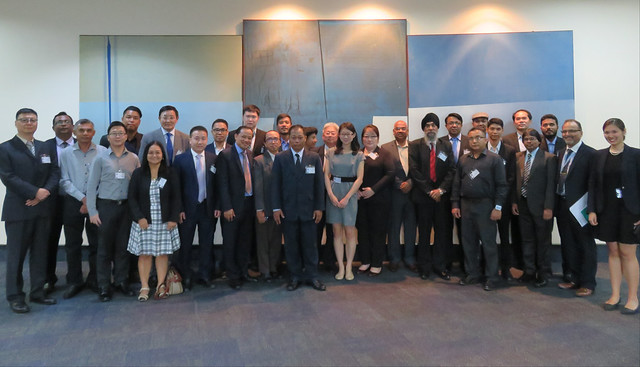Workshop
2018 Asia Pacific Clean Air Partnership Joint Forum and Clean Air Week
On March 20, 2018, ICCT researcher Zifei Yang presented at two workshops organized by UN Environment and Clean Air Asia as side events at the 2018 Asia Pacific Clean Air Partnership Joint Forum and Clean Air Week.
The morning session, titled “Cleaner fuel and vehicles in Asia: Implementing the global sulfur strategy,” shared experiences in adopting and developing stricter vehicle emission standards and fuel quality.
Bert Fabian from UN Environment provided opening remarks that gave some background on both the PCFV regulatory toolkit and global sulfur strategy. Next, Dr. Supat Wangwongtana from Asian Institute of Technology introduced the implementation of vehicle emission standards, equivalent fuel quality, and a proposal for Thailand’s roadmap to Euro 6/VI. Anumita Roychowdhury from the Center for Science and Environment discussed the implementation and development of the Bharat IV and VI standards in India. Zifei shared the progress and challenges associated with the implementation and design of China 4/IV and China 6/VI standards in China. A panel discussion, with representatives from Mongolia, Bangladesh, Indonesia, and Maldives, updated the group on recent developments, implementations, or impacts on fuel emission policies.
The afternoon session, “Doubling fuel economy in Asia,” shared experiences on developing national policies for more efficient vehicles, including electric vehicles, as well as the challenges and benefits of having a regional approach to promoting policy development.
Bert Fabian opened the session with a brief introduction of the Global Fuel Economy Initiative (GFEI) and integrating electric vehicles. Next, Zifei presented an overview of global fuel economy policies, with an emphasis on the application of fuel efficiency standards, fiscal measures, and vehicle fuel efficiency labeling schemes. Gessarin Gunthawong from GIZ presented ongoing work on ASEAN fuel economy roadmap development, and the impact of Thailand’s fuel economy policies. Representatives from Myanmar, Sri Lanka, and Nepal also updated the group with recent developments on fuel efficiency policies.

